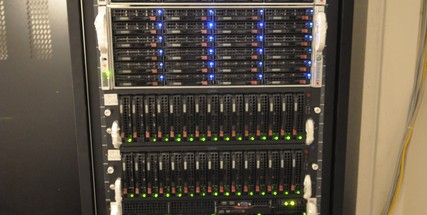Comcast to buy Time Warner Cable
Comcast on Thursday will announce its intent to acquire Time Warner Cable in a $45 billion deal.
NEW YORK (CNNMoney)
Comcast on Thursday will announce its intent to acquire Time Warner Cable in a $45 billion deal that will combine the two biggest cable companies in the United States.
Comcast (CCV) has agreed to pay $158.82 per share of Time Warner Cable (TWC, Fortune 500) stock, according to two people with direct knowledge of the transaction who insisted on anonymity because the deal will not be publicly announced until Thursday morning.
The two companies expect the merger to receive government approval and take effect by the end of the year, but regulators are likely to take a close look at the potential impact on consumers.
The terms of the deal were first reported on Wednesday night by CNBC.
The apparent deal ends months of jockeying for control of Time Warner Cable, which is the country’s second biggest supplier of cable television service, with about 12 million subscribers in markets like New York City and Los Angeles. Charter (CHTR, Fortune 500), a smaller cable company, had been attempting a takeover of the company, but had been rebuffed by Time Warner Cable’s board and chief executive.
Comcast had cast a shadow over the negotiations, and had reportedly held talks with Charter about how to potentially divvy up Time Warner Cable’s territories.
By swallowing up Time Warner Cable on its own, Comcast will gain even more leverage over the country’s marketplace for television, broadband Internet and phone services. Comcast already has about 23 million television subscribers in markets like Philadelphia, where it is headquartered.
Even before the official announcement, questions arose about whether Comcast will be allowed to expand its cable footprint so substantially.
Regulators used to enforce a rule that prohibited a single cable company from controlling more than 30% of the market. But Comcast led a challenge to that rule in the mid-2000s, and in 2009 a federal appeals court threw out the 30% cap.
The cable company remains remarkably well connected in Washington. In fact, its chief lobbyist, David Cohen, was a guest at the White House state dinner for the French president on Tuesday night.
Still, the Justice Department and other federal agencies will surely line up to scrutinize the proposed combination of Comcast and Time Warner Cable. Sources with direct knowledge of the impending deal said that Comcast, in a nod to concerns about the size of the combined cable provider, would voluntarily divest local cable systems totaling about three million subscribers.
One public interest group, Free Press, signaled immediate opposition to the consolidation.
“In an already uncompetitive market with high prices that keep going up and up, a merger of the two biggest cable companies should be unthinkable,” the group’s president, Craig Aaron, said in an email. “This deal would be a disaster for consumers and must be stopped.”
Free Press similarly opposed Comcast’s acquisition of NBCUniversal, which was approved by the government – with conditions – in 2011.



 )
)

